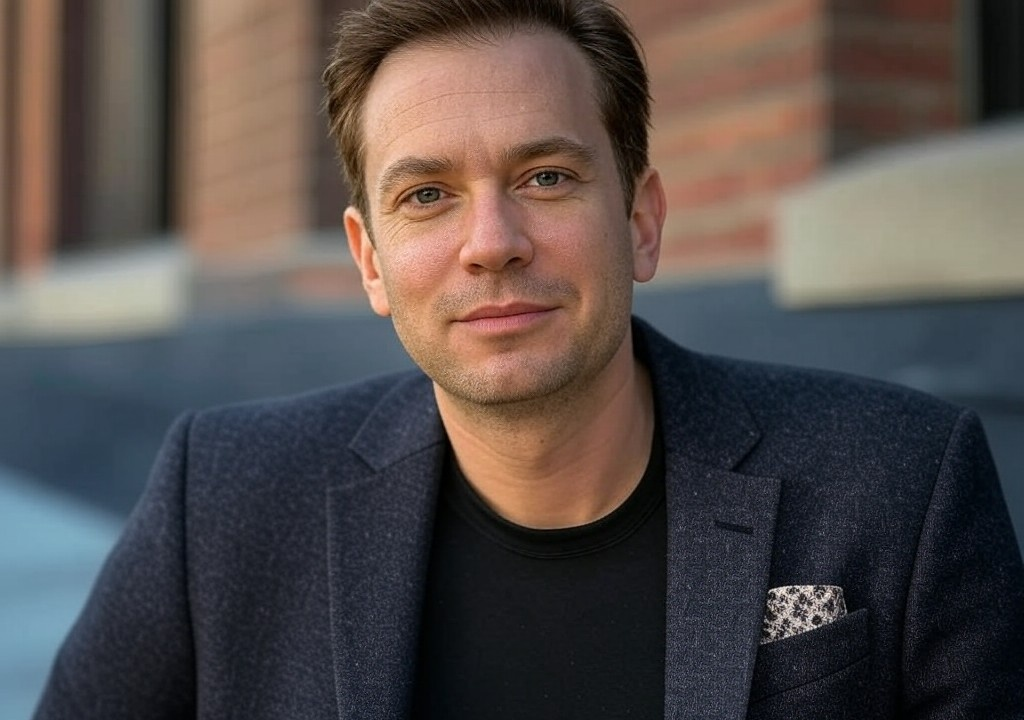The air smelled of fresh ink and overworked espresso machines. That’s how I remember the newsroom at my very first internship—a glossy, overly caffeinated jungle of ideas and deadlines. It was the summer after my sophomore year at Yale, and I was interning for a small, scrappy arts magazine in Manhattan. Think The Devil Wears Prada, but instead of high fashion, everyone debated emerging underground performance art and where to find the best oat milk latte south of 14th Street. My role? Resident coffee fetcher…and, occasionally, aspiring writer.
Truthfully, I wasn’t expecting to write much. Maybe punch up a caption here, reorganize a byline there. But one fateful July afternoon (because drama always needs an appropriately humid setting), everything changed when the editor pointed their pencil at me and said, “Julian, you’re up.”
Or, more accurately, my boss Donna sighed, threw her hands in the air, and groaned, “Fine, let the intern handle it.”
Birth of a Byline
The assignment: a 500-word review of a pop-up poetry reading happening in Dumbo over the weekend. At the time, Dumbo wasn’t yet swarming with influencer photoshoots and juice bars; it still had a gritty, industrial charm. Poets would gather under the Manhattan Bridge, their words bouncing off brick walls with the kind of echo that made even the awkward metaphors sound important.
Now, I had no credentials as a poetry critic. My honors thesis would eventually decode the works of James Baldwin, but at this point, my literary heroes were Tupac Shakur and the IKEA catalog. Yet Donna insisted. “Everyone else is busy. Plus, you’ve told me you read. Go. Write. Don’t screw it up.”
The pressure was suffocating. I hadn’t been allowed to write anything official all summer, and now my first real assignment was supposed to be the centerpiece of Monday’s issue. It felt like being asked to quarterback the Super Bowl after spending the whole season as the waterboy. My inner imposter syndrome was practically screaming, “Donna, this feels like a terrible administrative oversight.”
Still, I went. Armed with my Moleskine notebook, an over-sharpened pencil, and enough anxiety to power a Tesla, I showed up at that poetry reading under the Brooklyn sky.
The Poetry of Panic
Here’s what they don’t tell you about writing for publication: crafting words isn’t the hard part—it’s overcoming the panic that people might actually read them. Sitting on the cold concrete steps of the bridge's underpass, I tried to listen like an academic, but my brain was spinning useless questions like, “What if this is terrible?” and “Are there snacks at poetry events? If not, why?”
What I remember most vividly is one poet comparing their heartbreak to a "soggy bodega bagel," which—depending on your love of carbs—was either brilliant or horrifying. (Spoiler: I decided it was brilliant in my review.) Another poet used the phrase “Brooklyn sunsets taste like accidental hope,” which was so earnest it almost made me text my high school ex and apologize for being a disaster at prom.
By the time I left, I had a chaotic mix of notes in my journal: fragmented stanzas, detailed descriptions of the venue's shabby-but-intentional vibe, and a brief diagram of where better acoustics could’ve improved the whole performance. Essentially, my thoughts were a mess. But hey, I had grown up in Brooklyn. If there was one thing I knew how to romanticize, it was crumbling buildings and overly emotional artists.
Byline on the Line
Back at the magazine, I typed furiously, trying to balance critique with admiration, skepticism with enthusiasm. My first draft read more like a love letter to Brooklyn than a review of the event. “The poetry community radiates the resilience of cracked sidewalks,” I wrote, which would’ve been fine if I were running for City Poet Laureate.
After several rounds of edits, however, the piece started shaping into something I didn’t totally hate. I kept the bodega bagel metaphor (sue me) and added just enough critical edge to avoid complete fanboy territory. When I finally handed it over to Donna, my palms were sweaty—as if my very credibility depended on the fate of this one review.
A few days later, the magazine hit stands. And there it was: my name, neatly printed in Arial 11-point font beneath the headline. First Byline: Acquired.
Lessons Learned Under the Manhattan Bridge
Having your first piece published is like your first crush. At the time, it feels monumental, life-defining, and overwhelming—then you look back and realize how awkward the whole experience was. But, much like love, the takeaway isn’t so much about perfection as progress. That poetry review wasn’t groundbreaking journalism, but it taught me lessons I still carry with me, whether I’m writing about relationships or the history of Brooklyn brownstones.
Here’s what I learned that day:
- Impostor Syndrome Is Inevitable: Every creative endeavor begins with doubt. The trick is to write through it anyway. Even if you feel like the least qualified person in the room, act as if you belong there. Eventually, you’ll start believing it.
- Details Matter: Describing the texture of a setting or the rhythm of a poem can make your readers feel like they’re standing beside you. (Pro tip: This also works when telling stories on first dates. People swoon over evocative imagery.)
- Everyone Is Faking It (At Least a Little): Yes, even poets at underground readings and editors who sigh dramatically every time an intern walks by.
The Intersection of Writing and Relationships
Strangely enough, the process of writing that review mirrored much of what I’d later come to understand about relationships. Both require vulnerability. Both can be chaotic. Both demand that you take leaps of faith, even when you may not feel ready. There’s also an art to balancing critique with admiration—and learning when to leave that overly soggy metaphor (or toxic text thread) behind.
The vulnerability I felt putting my first piece out there is the same vulnerability anyone feels when opening up to a new connection. It’s terrifying. It’s exciting. And yes, it involves the occasional bodega-bagel heartbreak. But the reward? Whether it’s seeing your name in print or finding someone who gets your quirks, it’s worth the risk.
Closing the Chapter, Starting the Next
I’d love to say my byline in that tiny arts magazine launched me directly into literary stardom, but life rarely unfolds with that kind of neat narrative arc. Still, it was a moment that shifted my perception of what I was capable of. That byline wasn’t just about poetry—it was about realizing I had a voice worth sharing, shaky metaphors and all.
So, whether you’re writing your first piece or daring to be vulnerable in matters of the heart, take the leap. Do the scary thing. Write the messy first draft of your life, and trust that you’ll edit it later. Whatever stage you’re at, just remember: every cracked sidewalk leads somewhere. And every “soggy bodega bagel” holds the potential for an unexpectedly beautiful story.




















